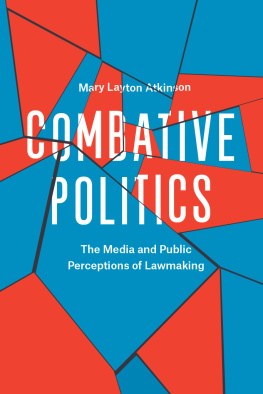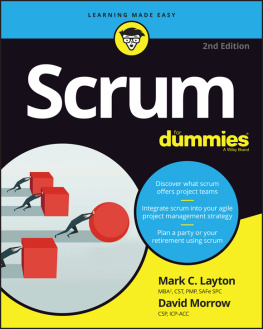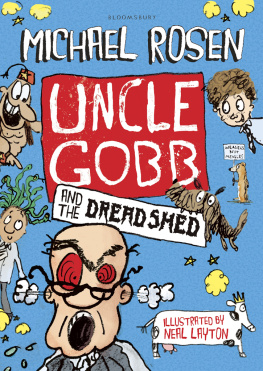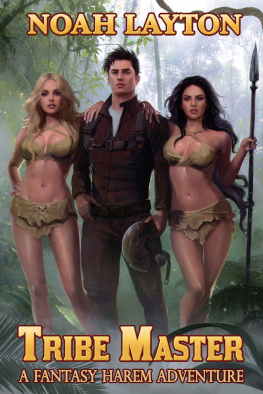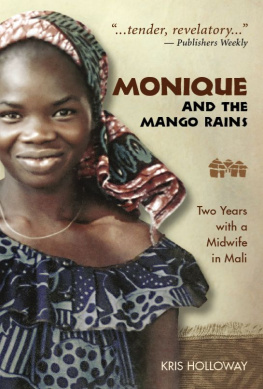This book is dedicated to the memory of my European parents who survived two global wars and lived in a different world, Etienne (1903-1960) and Simone (1905-2014), and to my twenty-first-century Canadian great-grandchildren, Alexander, Lana, Henry, Benjamin, Juliette, Lilith Alexandra and those yet to come, who will bear witness to the future and whose generation will be responsible for shaping it.
Contents
Contents
PREFACE
1: On Human Nature
Good and Evil
Order and Dissonance
Intent and Consequence
Conscience and Redemption
Free Will and Responsibility
Crime and Punishment
2: Us and Them
Hierarchies
Social Barriers
Legal Barriers
Physical Barriers
3: Beyond the White Mans Burden
Slavery
Colonialism
Globalization
4: Vox Populi
Protest
Charivari
Bullying
Curses
Hue and Cry
5: A Bodys Worth
Cannibalism
Prostitution
Science
Surrogacy
6: The Hysterical Female
Witchcraft
Adultery
Abortion
Female Genital Mutilation
7: Testosterone and Togetherness
S eafarers
Hooligans
Youth Gangs
8: The Killing Plague
Democide and Genocide
Massacres
Shell Shock
9: Gaia Anthropocene
The Dominion of Man
The Petroleum Age
The Gaia Hypothesis
10: Reflections on Good and Evil
The World Asunder
Our Uncommon Reality
The Human Condition
Tomorrows Leaders
Acknowledgements
Bibliography
Films and Television Documentaries
About the author
PREFACE
Twice in my life, I saw a face that I felt personified evil. The first was when, changing television channels, I switched mid-play to Othello and saw Iago speaking softly into the Moors ear. In the closeness of the screen, the actors face looked so unbearably and creepily venomous, almost forcing us to participate in his betrayal, that I had to turn the TV off. The second time was while waiting with my husband to cross the street beside three teenagers, a boy and two girls. The boy was whispering to one of the girls, looking at us while doing so. I felt a sense of absolute revulsionthe boys face could only have been described as evil, even if one had not known a second earlier what evil might look like.
The following day, I went to the offices of the British Columbia Police Commission, whose reports were available to the public, and asked whether they had done any studies on juvenile delinquency and prostitution. They had not but, since I was a PhD student in anthropology at the time, they thought I would be qualified to prepare one myself. The report, albeit with a different focus, came out in 1974 with some fanfare but also some controversyit had been published with many names blacked out, thus raising suspicion. By then I knew more about bad luck, poor judgement, poverty, navet and ignorance, but I was none the wiser about evil.
On the verge of entering the tenth decade of my life, I am still reflecting on the nature of good and evil. With age and the narrowing of my horizon, such questions puzzle me all the more as I can see the time when their answers will no longer affect me. But they still do, and I wonder, perhaps with more curiosity than generosity, why we are not kinder to each other and to ourselves. We have but one world, one life. Yet, it is not love and compassion that rule us, but anger and greed. And, according to some, we are doomed from birth to be so afflicted.
An act of courageous rescue reported in the press a few years ago prompted me to consider the motivations of heroismparticularly everyday acts of bravery, often accompanied by heartfelt denials by their performers that these were heroic actions and only what anyone would have done in the same circumstance. Heroic rescuers often mention that they acted entirely by instinct and without thought.
Contemplating heroism but never having been in a position to be tested on it myself, I looked into my own heart and read a confusing message. I had little doubt that, by instinct, I too would dive into the river, crawl to the edge of the cliff and even perhaps ignore my fear of fire, falling unthinking into heroismbut only if I did not give myself time for reflection.
Reflection might bring a few attendant anxieties: paralyzing fear of danger and pain; hope that others (younger, fitter, more effective) might step in ahead of me to do what must be done; and, lurking almost beyond my consciousness, I could half-perceive the rejection of responsibility, craven selfishness, even cowardice and incipient shame. Other rescuers would be more effective than I and so I would put my conscience at rest and merely encourage from the shore those heroically diving into the freezing waters in my stead. Self-interest, far more than a desire for more efficiency and speed in saving drowning children, was the guiding principle behind my non-heroic hesitation.
In this process of reflection, my interest shifted from the nature of heroism to the consideration of the sly process of self-deceit and self-preservation I could see at work in myself in this imagined scenario. Would I know the right thing to do, the ethical choice, the one that I wished others would do unto me? Without a doubt. Yet, my heart (figuratively speaking, for my real heart has no crises or qualms of its own and is only concerned with keeping on beating), my other heart was a battleground. So is everyone elses. And not just when heroism is called for, but also in our everyday actions, their motivations and the choices we make. Contemplating the nature of self-interest caught my curiosity and caused me to wonder more widely about the concepts of good and evil and how they affect our daily lives.
For the next year and a half, this curiosity guided my reading and prompting me to explore topics and events that illustrate the various degrees of nastiness performed by our species; acts that contain some unsavoury, malevolent or even criminal element in their conception and intent, their execution or performance, or in their consequencessometimes all at once. I chose to focus on a western perspective, drawing information from the four countries I know best: Canada, France, the United Kingdom and the United States.



